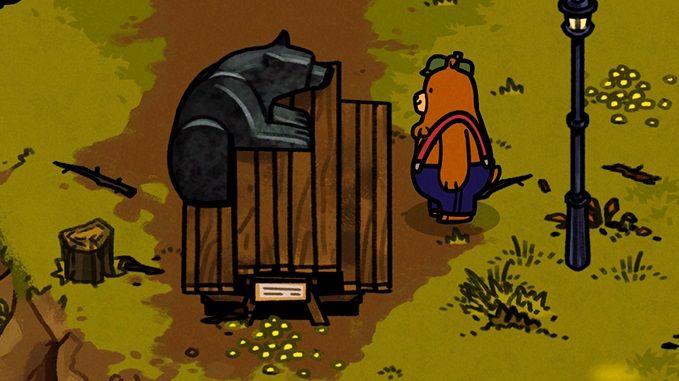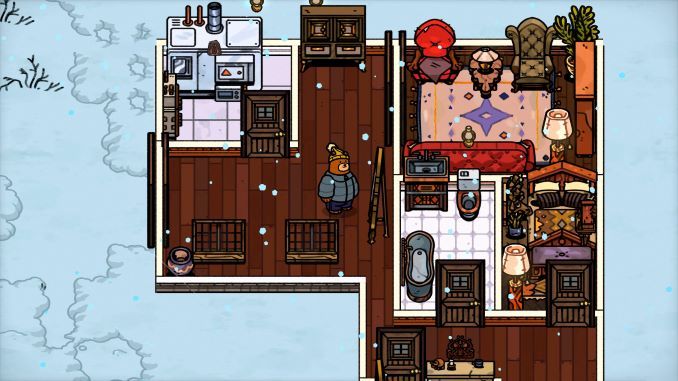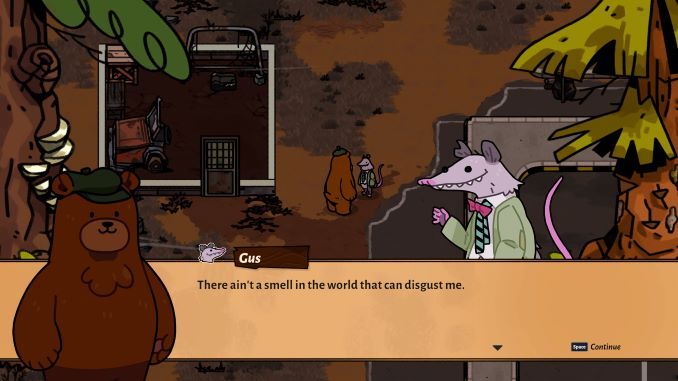Try Your Paws at Managing a Woodland Hotel in the Excellent Bear and Breakfast
Excited Bear Noises

When I was in elementary school, I drove past a bed and breakfast every morning. I lived in a tourist town, so its presence wasn’t exactly surprising, but since no one I knew had ever stayed there, it had an air of mystery. Regardless of the question of who would want to visit my hometown, anyway, there was the larger question of what it would be like to stay there, or even—perhaps?—to run it.
Now I and everyone else who’s ever dreamed of running away and opening a bakery or spent too much time designing an apartment in The Sims can answer this question for ourselves. Bear and Breakfast is a hotel management sim developed by Gummy Cat and published by Armor Games Studios, where you play as a bear on an errand from his mom who stumbles across a property development scheme run by a robotic shark. You can make money by developing hotels across the forest you live in and renting them out to humans—messy, absentminded creatures who want to spend two days, max, in the scenic area you call home.
After a short tutorial, you’re ready to build your first B&B. This process involves dividing your property into rooms, then populating those rooms with the furniture they require: bedrooms need beds, bathrooms need a sink and shower, etc. By decorating each room, you raise its comfort and decoration scores, two criteria by which your guests will judge and rate your establishment. These guests also generate trash during their stay, which you can give to a discerning raccoon in exchange for decorative items. The loop of getting cash (and garbage) payments from guests that can be funneled back into improving their stay is gripping, and I had a few late nights where I was determined to finish just one more building request that ended up taking me down a whole new path.

This clinical description of the decoration process fails to capture one thing about it: it’s really, really fun. The micromanagement of mapping out a room that hits guest requirements while also making it aesthetically pleasing scratched a crafting game itch that I didn’t know I had. The small details of the game are beautifully designed and look great together, and there’s enough variety that I felt like as much of a home designer on my 50th room as I did on my first.
After spending about 20 hours with it, the word I associate with Bear and Breakfast is abundance. It’s an ethos that comes through in every part of the game, from its crafting process to its quests, and even to the amount of content it contains. For the first half of the game, I found enough materials just by wandering around to craft almost anything I needed. When characters sent me on quests, I often had the item they needed sitting in my inventory. Playing Bear and Breakfast is a soothing experience. Frequently, it’s easy. But even when you’re completing a more challenging task, there’s little stopping you from taking a break and going to cook some french onion soup, or wandering down to the swamp to deliver flowers to an alligator witch.
